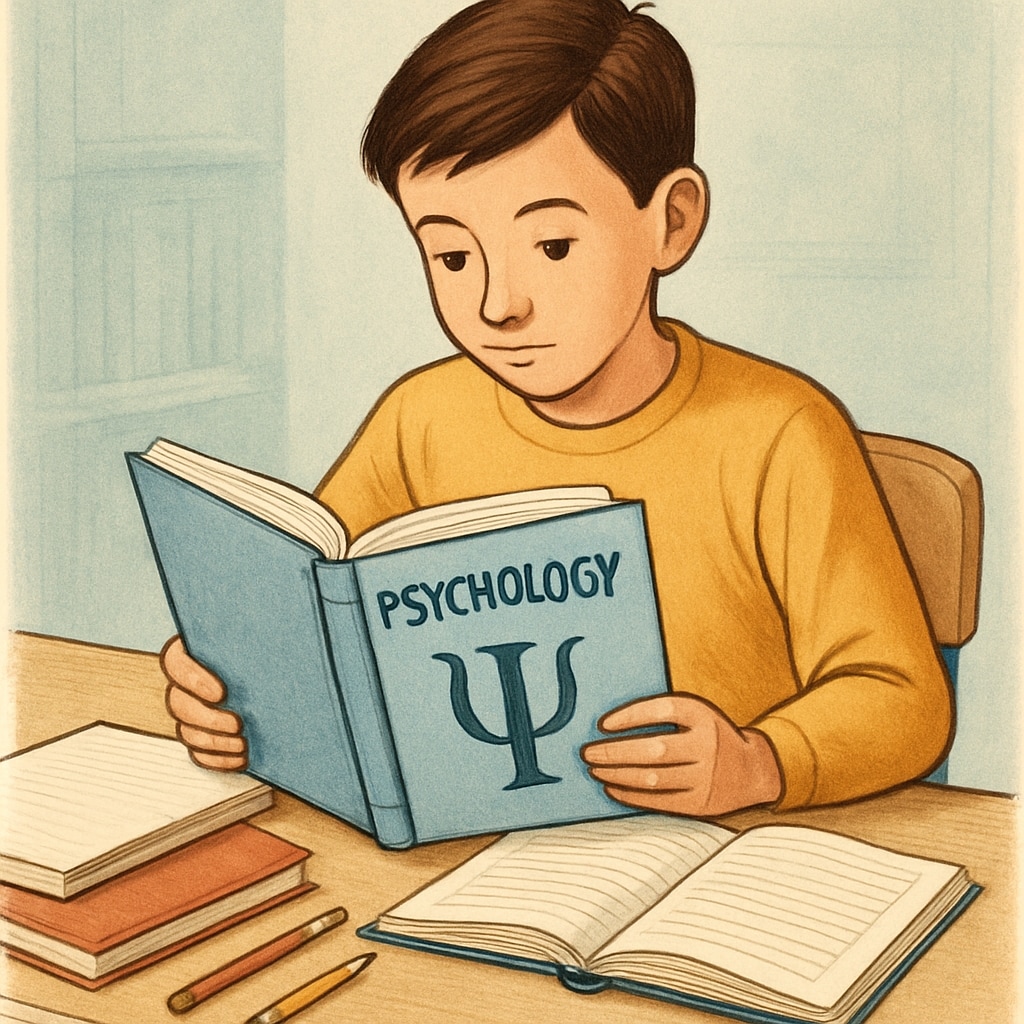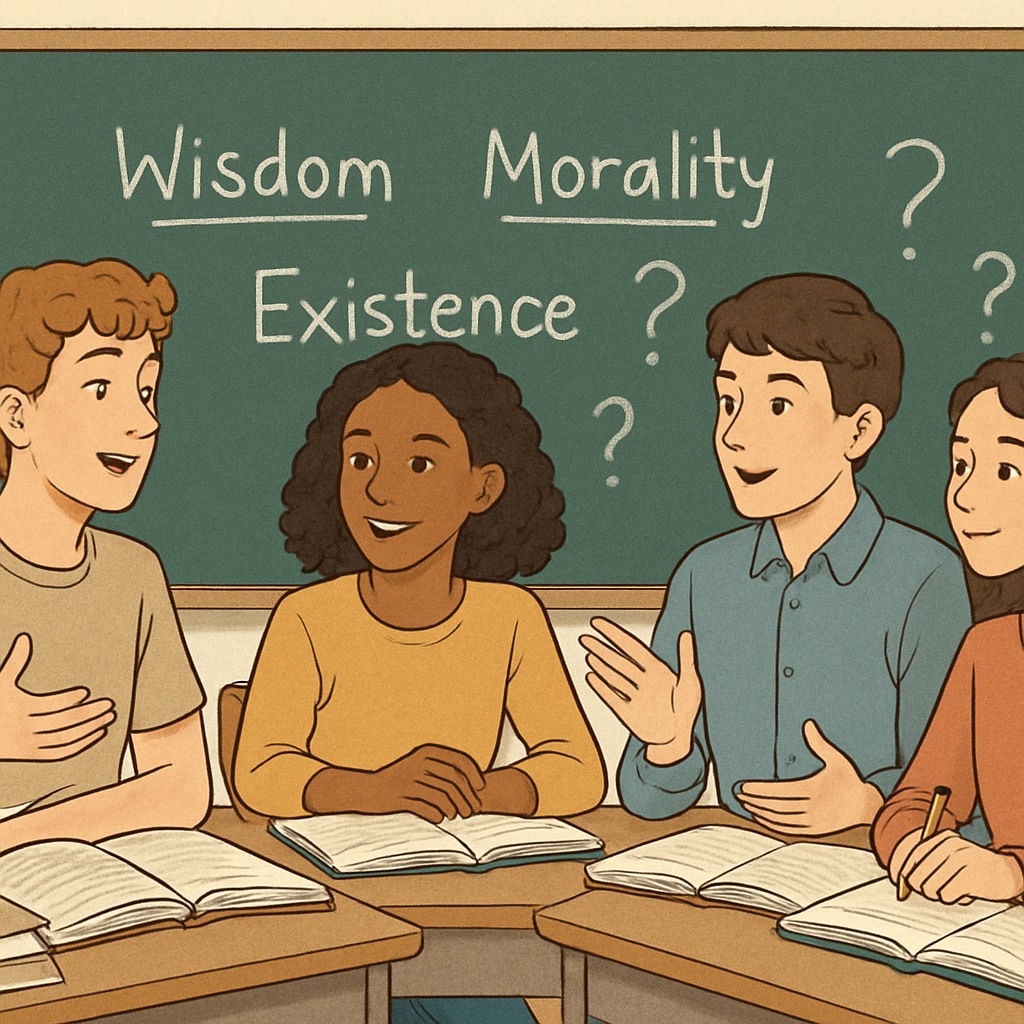Psychology, philosophy, and self-learning resources have become invaluable tools for K12 students, offering them opportunities for self-discovery and the development of critical thinking skills. In today’s education landscape, introducing young learners to these disciplines can have a transformative impact, equipping them with the tools to explore their inner world and better understand the complexities of human thought and behavior. This article outlines practical resources and methods tailored to different age groups, ensuring a meaningful and engaging learning experience.
Why Teach Psychology and Philosophy in the K12 Stage?
Incorporating psychology and philosophy into the K12 curriculum fosters critical thinking, empathy, and self-awareness. These subjects encourage students to ask profound questions about themselves and the world around them. For example, psychology helps students understand emotions, behavior, and interpersonal relationships, while philosophy challenges them to think logically, reflect deeply, and explore ethical dilemmas.
Research shows that early exposure to these disciplines enhances cognitive development and problem-solving abilities. According to an article on Britannica, philosophy equips learners with reasoning skills that are essential for academic and personal growth. Similarly, psychology provides a foundation for understanding mental health and emotional intelligence, which are critical in navigating the challenges of adolescence.

Age-Appropriate Resources for Learning Psychology and Philosophy
Ensuring that resources are tailored to the learner’s age and developmental stage is key to effective engagement. Below are some suggestions for different age ranges:
Primary School (Ages 6–10)
- Books: The “What is Psychology?” series for kids introduces basic psychological concepts in a fun and interactive way.
- Activities: Role-playing games and simple thought experiments help children grasp philosophical ideas like fairness and decision-making.
- Videos: Short animated videos from platforms like YouTube Kids explain emotions and moral questions in an age-appropriate manner.
Middle School (Ages 11–14)
- Books: “Sophie’s World” by Jostein Gaarder is an excellent introduction to philosophy for young readers.
- Interactive Tools: Psychology-focused apps like “Smiling Mind” and “Mindfulness for Teens” teach mindfulness and emotional regulation.
- Classroom Discussions: Debates on ethical scenarios or psychological phenomena encourage critical thinking.
High School (Ages 15–18)
- Books: Introductory texts like “The Psychology Book” (DK Publishing) or “The Philosophy Book” provide a comprehensive overview of key concepts.
- Online Courses: Platforms like Coursera and Khan Academy offer free courses in psychology and philosophy.
- Documentaries: Films such as “The Examined Life” and “The Century of the Self” delve into philosophical and psychological topics in depth.
For additional resources, the Wikipedia page on psychology offers a wealth of introductory material and links for further exploration.

Practical Tips for Parents and Educators
Parents and educators play a crucial role in guiding students through their journey in psychology and philosophy. Here are some practical tips:
- Create an Open Environment: Encourage questions and foster a safe space for discussion. This helps students express their thoughts without fear of judgment.
- Incorporate Real-Life Applications: Relate psychological and philosophical concepts to everyday life. For instance, discuss ethical dilemmas seen in news stories or explore how emotions influence decision-making.
- Leverage Technology: Use digital tools and online platforms to make learning interactive and engaging. Apps, podcasts, and educational videos can supplement traditional methods.
Conclusion: The Benefits of Early Exploration
Introducing K12 students to psychology and philosophy provides them with a strong foundation for personal growth and intellectual curiosity. By integrating age-appropriate resources and fostering an environment of open discussion, parents and educators can empower young learners to navigate the complexities of their inner and outer worlds. The journey into these disciplines may be challenging, but it is one that offers lifelong benefits.
Whether through books, interactive tools, or guided discussions, the resources available today make it easier than ever for students to embark on this transformative journey. Start small, stay curious, and watch young minds flourish.
Readability guidance: This article uses short paragraphs, age-specific recommendations, and practical examples to ensure clarity and engagement. Transition words like “however” and “for example” connect ideas, while lists break down information into digestible segments.


